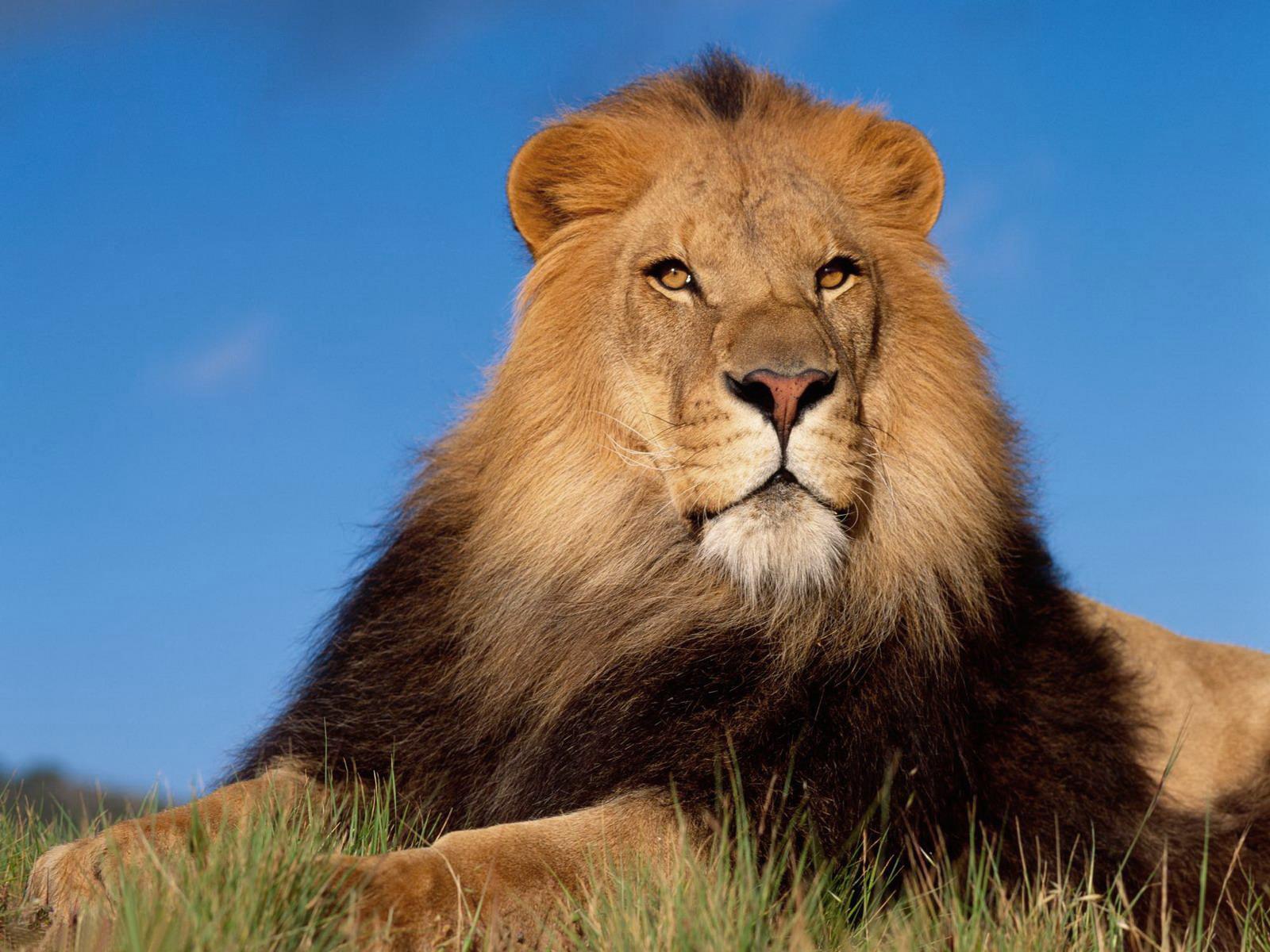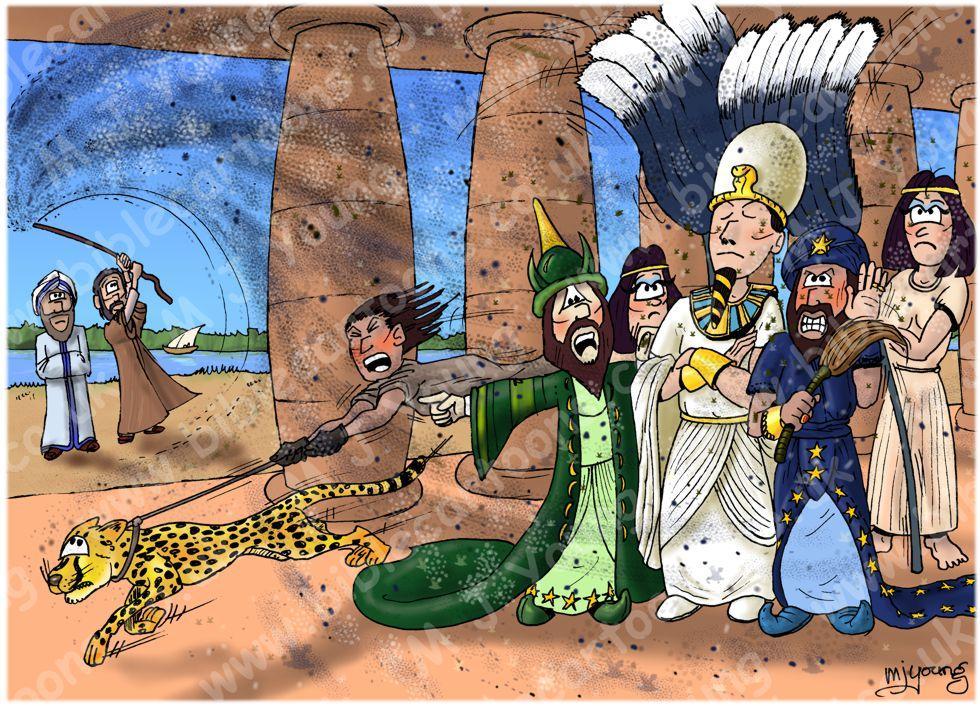Exodus 8:20 And the Lord said to Moses, “Rise early in the morning and stand before Pharaoh as he comes out to the water. Then say to him, ‘Thus says the Lord: “Let My people go, that they may serve Me. 21 Or else, if you will not let My people go, behold, I will send swarms of gnats on you and your servants, on your people and into your houses. The houses of the Egyptians shall be full of swarms of gnats, and also the ground on which they stand. 22 And in that day I will set apart the land of Goshen, in which My people dwell, that no swarms of gnats shall be there, in order that you may know that I am the Lord in the midst of the land. 23 I will make a difference between My people and Your people. Tomorrow this sign shall be.” 24 And the Lord did so. Thick swarms of gnats came into the house of Pharaoh, into his servants’ houses, and into all the land of Egypt. The land was corrupted because of the swarms of gnats. 25 Then Pharaoh called for Moses and Aaron, and said, “Go, sacrifice to your God in the land.” 26 And Moses said, “It is not right to do so, for we would be sacrificing the abomination of the Egyptians to the Lord our God. If we sacrifice the abomination of the Egyptians before their eyes, then will they not stone us? 27 We will go three days journey into the wilderness and sacrifice to the Lord our God as He will command us.” 28 So Pharaoh said, “I will let you go, that you may sacrifice to the Lord your God in the wilderness; only you shall not go very far away. Intercede for me.” 29 Then Moses said, “Indeed I am going out from you, and I will entreat the Lord, that the swarms of gnats may depart tomorrow from Pharaoh, from his servants, and from his people. But let Pharaoh not deal deceitfully anymore in not letting the people go to sacrifice to the Lord.” 30 So Moses went out from Pharaoh and entreated the Lord. 31 And the Lord did according to the word of Moses; He removed the swarms of gnats from Pharaoh, from his servants, and from his people. Not one remained. 32 But Pharaoh hardened his heart at this time also; neither would he let the people go.
The Fourth Plague: Wild Animals

Exodus 8:20 And the Lord said to Moses, “Rise early in the morning and stand before Pharaoh as he comes out to the water. Then say to him, ‘Thus says the Lord: “Let My people go, that they may serve Me. 21 Or else, if you will not let My people go, behold, I will send wild animals to attack you and your servants, on your people and into your houses. The houses of the Egyptians shall be full of wild animals including vultures and peacocks from the sky, crocodiles and hippos from the water, and also the ground including lions, leopards, bears, elephants, tigers, and hyenas on which they stand. 22 And in that day I will set apart the land of Goshen, in which My people dwell, that no wild animals shall be there, in order that you may know that I am the Lord in the midst of the land. 23 I will make a difference between My people and Your people. Tomorrow this sign shall be.” 24 And the Lord did so. There was a thunderous sound of baying and roaring outside and destructive hordes of wild animals came into the house of Pharaoh, into his servants’ houses, and into all the land of Egypt. The land was destroyed because of the wild animals. Vultures grabbed the children of Egypt followed by the lions, tigers, wolves, leopards, hippos, crocodiles, hyenas, jackals, scorpions, snakes, elephants, bears, and peacocks that attacked man and beast. Only in the land of Goshen where the Jews live there are no wild animals. 25 Then Pharaoh called for Moses and Aaron, and said, “Go, sacrifice to your God in the land.” 26 And Moses said, “It is not right to do so, for we would be sacrificing the abomination of the Egyptians to the Lord our God. If we sacrifice the abomination of the Egyptians before their eyes, then will they not stone us? 27 We will go three days journey into the wilderness and sacrifice to the Lord our God as He will command us.” 28 So Pharaoh said, “I will let you go, that you may sacrifice to the Lord your God in the wilderness; only you shall not go very far away. Intercede for me.” 29 Then Moses said, “Indeed I am going out from you, and I will entreat the Lord, that the wild animals may depart tomorrow from Pharaoh, from his servants, and from his people. But let Pharaoh not deal deceitfully anymore in not letting the people go to sacrifice to the Lord.” 30 So Moses went out from Pharaoh and entreated the Lord. 31 And the Lord did according to the word of Moses; He removed the wild animals from Pharaoh, from his servants, and from his people. Not one remained. 32 But Pharaoh hardened his heart at this time also; neither would he let the people go.
Which one is it? Gnats or wild animals?
